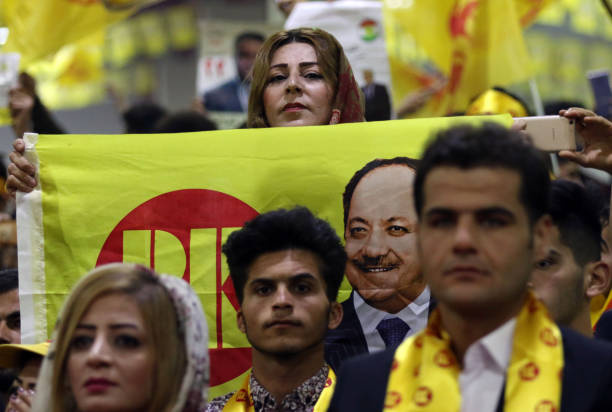Behind the Heavy Defeat of Opposition Parties in Kurdistan Parliamentary Elections

The results of the fifth parliamentary election in the Kurdistan Region indicate a significant change in the electoral behavior of the Kurdish people compared to the preceding period.
This is the first election in the last quarter century with nearly half of the eligible voters refusing to vote. To make a comparison, it was similar to the frustration and despair of social forces that were seeking change in Iran between 2002 and 2005, the consequence of which was a sharp decline in participation in elections, and paved the way for Principlists to take helm of elective institutions.
In Kurdistan Region, the fall in the rate of participation of the people has led to a sharp drop in the votes of the main opposition groups, namely, the Gorran Movement and the Kurdistan Islamic Union, which have lost about seventeen seats.
Why did the two parties fail?
The Gorran (Change) movement, with the failed experience of participating in the ruling coalition and returning to the streets, eventually failed to provide a trusted alternative for social groups seeking change.
In addition, the death of Nechirvan Mustafa created a vacuum in political leadership of the party, and political chaos, with no clear prospect of getting out.
In the past four years, the Kurdistan Islamic Union has moved away from an opposition stance by adopting positions close to the ruling parties, hence losing many of its previous potentials and functions. The party's support for the Kurdistan Democratic Party’s stance in the process of dissolving the Kurdistan Parliament during the conflict over the expiration of Barzani's presidential time was the apex of its about-face.
In addition, the group has an experience similar to the Gorran Movement: a leadership crisis and the inability to remove the old generation of its leaders who lack a contemporary discourse that attracts the public audience.
More importantly, with the ruling economic system, the main feature of which is patronage, the reformist opposition has a tough challenge to change the status quo.
Referendum was hardly a factor to influence voter behavior patterns in this election. It is even hard to contend that the emergence of ISIS has had a profound impact on the Kurdish Islamist groups’ regression.
What is clear is that the two groups of Kurdistan Islamic Group and the New Generation Movement, the first with a Salafist origin and both opposing the referendum, had a dramatic increase in their votes and secured a total of fifteen seats.
Most probably this relative success is due to the coherence of leadership and the clarity of their political discourse. Two factors that the Gorran Movement, the Islamic Union and the Patriotic Union of Kurdistan lacked.
Of course, over the past ten years, and especially after the separation of the Gorran Movement, it is not possible to speak of the decline of the Patriotic Union, since, PUK gained the same number of seats in the third and fourth parliamentary elections.
But the number of seats that the Kurdistan Democratic Party gained thanks to the current circumstances and its strong leadership is unprecedented and shows an extraordinary increase after the first parliamentary election in 1992.
The only rival of KDP in its backyard, namely the Dohuk Governate, is the Kurdistan Islamic Union, which was severely weakened in this election. The turmoil in Sulaymaniyah Governorate somehow weakened simultaneously all KDP rivals. In fact, the main victor of declined participation was the Democratic Party, given the turbulent state of Sulaimaniyah populated province.
However, it is unlikely that the results of the recent parliamentary elections would lead to a fundamental change in the power relations in the Kurdistan Region. The reality of dual governance of Kurdistan Region (by KDP and PUK) will never allow a real transfer of power or the formation of a majority government with the participation of the victorious party and minor parties.
In the Kurdistan region, power is produced and distributed outside the parliament, and the closure of the fourth parliament for more than two years proves this claim. Ironically, one of the reasons people are discouraged from participating in elections and determining the political fate of the region that important political and economic decisions are taken not inside parliament but in political offices of the two major parties.
Recently, the political bureau of these two parties has also been weakened to some extent, and with the arrival of the second generation and the sons of revolutionary politicians on the scene, the power circle becomes tighter and more oligarchic day by day.
Needless to say, today, the best option is that the Kurdistan Democratic Party forms a majority government, and PUK and other parties serve as opposition for up to four years. But looking realistically, this is a far-fetched dream.
Turning to the relative victory of the Patriotic Union in Baghdad, it is likely that a new round of tradeoff will take place with a party and a government under KDP’s influence but with dual governance will take place.

